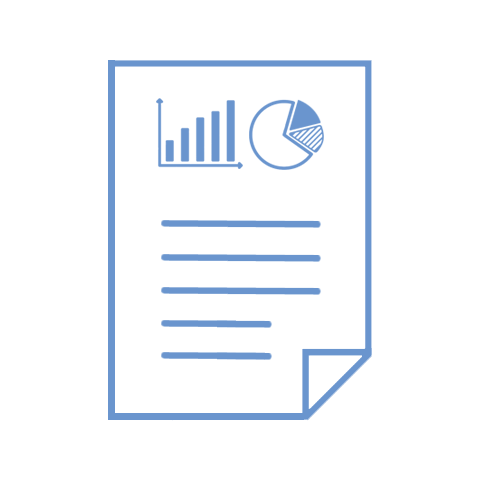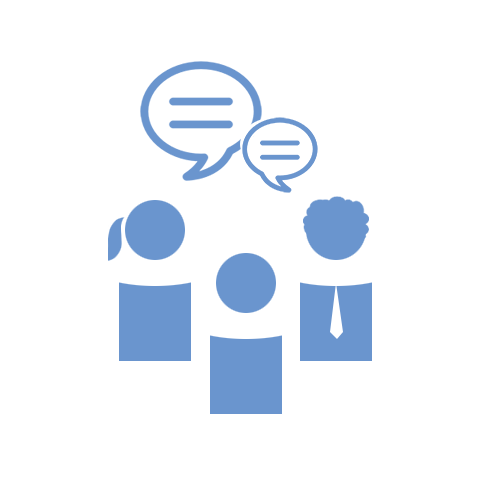EA Newsletter: March 2, 2017

Hey!
Hello to all our friends across the effective altruism community!
This month we’ve got everything from discussions on the effectiveness of different political actions to how to best communicate and share ideas.
We're also really excited to share with you a new donation platform that we hope will help you donate more effectively.
Happy reading,
The Team
Spotlight: Beta Launch of EA Funds
Over the last couple of editions of the EA Newsletter, we've covered the rise in demand for options that allow individuals to donate effectively, coordinate with others and benefit from expertise while reducing their total workload. Read the post we shared last month discussing donor lotteries.
This month we're excited to announce that the Centre for Effective Altruism (CEA) is trialling a project to try and meet this need: Effective Altruism Funds.
Effective Altruism Funds allows you to split your donation across four funds, each supporting a different cause area. When you donate to a fund you pool your donation with many like-minded donors. Cause area experts (currently Open Philanthropy Project Program Officers) then decide how to best allocate the pooled donations to the most promising giving opportunities they can find. The hope is that this may be among the highest impact donation options for many donors.
The full introduction to Effective Altruism Funds goes into detail on how it works, why it might be so high impact, as well as reviewing some of the considerations against using it.

Articles and Community Posts
Who deserves our care and moral concern? The Open Philanthropy Project describes their goal of “radical empathy” in this piece looking at how our circle of compassion has widened throughout human history and why it is important we take an open-minded approach to expanding it further.
The New York Times wrote about GiveDirectly’s basic income trial as not only great for development in Kenya but also a possible solution to future unemployment caused by automation replacing more and more jobs.
Holden Karnofsky writes about his changing thinking on public discourse, feedback and transparency, starting an interesting debate on the topic.
This post on vote swapping argues that supporting the practice could be more effective at influencing votes than door to door canvassing.
And Julia Wise writes about how the Boston Effective Altruism group is doing a lobbying project this season using advice from RESULTS, a grassroots anti-poverty group. This could be an interesting model for other local groups. If you’re looking to meet other people in the Effective Altruism community look for a group near you.

Timeless Classics
Effective Altruism is a question (not an ideology). The title says it all really.
If you enjoyed Open Phil's ‘Radical Empathy’ piece this month, you can read more about how expanding the moral circle could lead us to find new and important cause areas in Three Heuristics for Finding Cause X.
A classic worth re-sharing: Do Unto Others details a powerful analogy between what we would choose to buy for our own survival and how this might relate to choosing effective charities.

Annoucements
Animal Charity Evaluators (ACE) has issued a call for external reviewers as a part of their new research review process. Those with expertise in relevant fields are invited to sign up.
The Centre for the Study of Existential Risk (CSER) is putting out a call for papers and responders for a Climate Ethics and Climate Economics workshop focussed on Risk, Uncertainty and Catastrophe Scenarios. Deadline is the 24th March, the workshop will be on the 9-10th May.
The Oxford Prioritisation Project is a new research group in the effective altruism community. The Project’s goal is to allocate £10,000 to an organisation that accepts donations, in the way that will have the greatest positive impact. The project's blog, where you can comment and provide feedback, is now live.

Updates
80,000 Hours
80k released a heavily updated version of the quantitative problem framework and a profile on global priorities research. Several other profiles are currently also being drafted.
Animal Charity Evaluators
ACE’s 2016 Year in Review is now published. Notable accomplishments detailed in the review include moving over $3.5 million to recommended charities and distributing eight grants to new research projects through the Animal Advocacy Research Fund. ACE has also detailed a set of prospective goals for 2017.
Centre for Effective Altruism
As mentioned above, CEA has just launched a three-month trial of Effective Altruism Funds which could be one of the highest impact ways for individuals to donate. This is part of their wider focus on supporting the effective altruism community in making progress on doing good.
Cambridge Centre for the Study of Existential Risk
CSER has three new team members: Lalitha Sundaram working on biological risks; Nancy Ockendon working on horizon scanning for risks as well as the use of expert assessment to prioritise possible threats; and Haydn Belfield working as an Academic Project Manager, helping guide the general development and growth of the project.
Future of Humanity Institute
The Future of Humanity Institute ran a workshop on how normative uncertainty affects value comparisons and existential risk. They also hosted a workshop on understanding malicious misuse of AI, which was jointly organised with CSER and CFI.
GiveWell
GiveWell described why it's considering No Lean Season and Zusha! as potential 2017 top charities. It also discussed why more charities should consider applying for a GiveWell recommendation and what it means when a charity declines to participate in its review process.
Open Philanthropy Project
The Open Philanthropy Project made suggestions for donors interested in giving in response to recent executive orders that could harm immigrants, as well as a perceived increase in the risk of democratic backsliding in the United States.
Raising for Effective Giving
REG published a piece on their learnings from 2016, including their attempts at expanding into other industries.
Jobs
Co-Founder for highly effective global health charity
Summer Research Fellow at the Centre for Effective Altruism (CEA)
Postdoc for ‘Policy, Responsible Innovation and the Future of AI’ at CFI
AI Safety and Reinforcement Learning Internship at FHI
Research Analyst, Outreach Focus at GiveWell
Operations and Legal Program Manager at GiveWell
Manager of the Local Effective Altruism Network (LEAN)

Go forth and do the most good!
Let us know how you liked this edition and how we can improve further.
If you’re interested in past editions of this newsletter, here is the full archive
Get Involved in Effective Altruism
The Effective Altruism Newsletter is a joint project between the Centre for Effective Altruism, and .impact.
This is an archived version of the EA Newsletter sent to 32,027 subscribers on March 2, 2017.
To see the full archives, click here.


